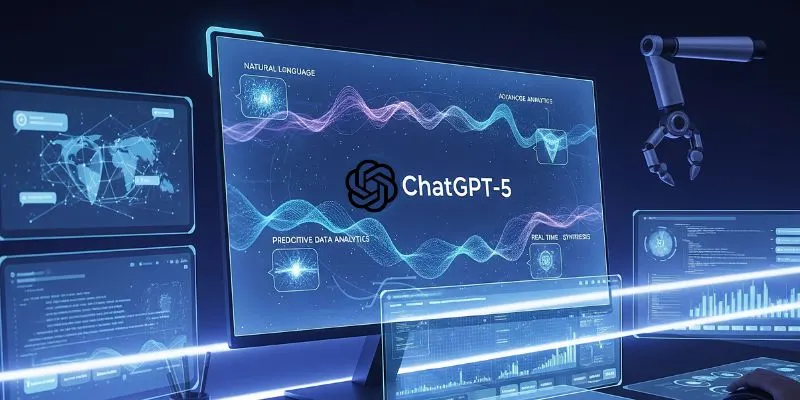By futureTEKnow | Editorial Team
The world of AI-powered education just witnessed a seismic shift: the CEO of Robinhood has launched Harmonic, a new AI math startup, that’s already valued at nearly $900 million. This isn’t just another edtech headline—it’s a signal of how fast generative AI is transforming the way we learn, invest, and innovate.
A valuation approaching $1 billion, especially at such an early stage, is a rare feat. It reflects massive investor confidence in the potential of AI-driven learning platforms to disrupt traditional education models. With the Robinhood CEO, Vlad Tenev, at the helm, the startup benefits from proven leadership in scaling technology for mass adoption and democratizing access.
Personalized Learning: Leveraging advanced artificial intelligence (AI), the platform adapts to each student’s strengths and weaknesses, providing tailored math instruction that evolves in real time.
Scalability: AI enables the platform to serve millions of learners simultaneously, breaking down barriers of geography and cost.
Data-Driven Insights: The system collects and analyzes student performance data, offering actionable feedback for both learners and educators.
This move is part of a larger trend: AI is rapidly reshaping education, making personalized, high-quality instruction more accessible than ever. The startup’s success could accelerate:
Adoption of AI tutors in classrooms and homes worldwide.
Investment in generative AI for other STEM subjects.
Competition among edtech giants to integrate smarter, more adaptive learning tools.
Generative AI in Education: Expect more startups to emerge, using AI to generate custom lessons, quizzes, and feedback.
EdTech Funding Boom: Major investors are doubling down on platforms that promise both scale and measurable outcomes.
Shift in Learning Models: Traditional one-size-fits-all education is giving way to hyper-personalized, AI-guided pathways.
The Robinhood CEO’s entry into AI math education brings credibility and momentum to a sector already buzzing with innovation. With a $900 million valuation, this startup is now a bellwether for the future of AI-powered learning, signaling that the next wave of unicorns may come from the intersection of AI, data science, and education.
Bottom line: The fusion of AI, big data, and visionary leadership is setting a new standard for what’s possible in education. As this startup grows, it’s not just changing how we teach math—it’s redefining the future of learning itself.

SpaceX aims to nearly double launches from Vandenberg in 2025, facing support from federal agencies but strong objections from the state and local communities.

Traditional Medicare will pilot AI-assisted prior authorization in 2026 across six states, focusing on high-risk outpatient services. Clinicians retain final say, but incentives and access concerns loom as CMS tests fraud reduction and “gold card” exemptions. Here’s what providers and patients should know.

OpenArt’s new “one-click story” compresses scripting, visuals, and edits into ready-to-post short videos—fueling viral growth and a fresh IP debate. We break down how it works, adoption signals, what’s next (multi-character, mobile), and practical guardrails creators and brands should follow to stay original and compliant.

OpenAI’s o3 swept the Kaggle AI chess tournament, defeating xAI’s Grok 4–0. The victory fueled the intense rivalry between Altman and Musk, reshaping AI benchmarks.

NASA and Google’s AI-powered Crew Medical Officer Digital Assistant enables autonomous diagnoses for astronauts on Mars missions, redefining remote healthcare for space and Earth.

Pinterest’s CEO confirms that fully agentic AI shopping is years away, as the platform invests in AI-powered tools to enhance discovery, inspiration, and personalized shopping experiences for millions.

Shopify’s new AI shopping tools are transforming e-commerce, letting agents and chatbots deliver smooth, personalized shopping and checkout experiences across platforms. Learn how these innovations reshape online retail.

Meta has acquired WaveForms AI, a startup pioneering emotion-detecting voice technology. Learn what this means for Meta’s AI voice ambitions and the future of AI audio.

Tracelight is revolutionizing financial modelling for finance professionals with AI-powered Excel tools that automate complex tasks, reduce errors, and unlock new analysis capabilities. Learn how this next-gen solution changes the future of spreadsheets.

China’s Lanyue lander completed its first major test, showcasing advanced engineering for safe, crewed moon landings before 2030. Explore how this milestone shapes the space race.

Microsoft rolls out GPT-5 across its Copilot suite, integrating smarter AI for enterprise and personal users. Discover new features, free access, and what sets this launch apart.

OpenAI’s GPT-5 is now live for all ChatGPT users. It brings faster, smarter AI with improved reasoning, expanded context, and safer outputs—marking a major leap in generative technology.
To provide the best experiences, we use technologies like cookies to store and/or access device information. Consenting to these technologies will allow us to process data such as browsing behavior or unique IDs on this site. Thanks for visiting futureTEKnow.